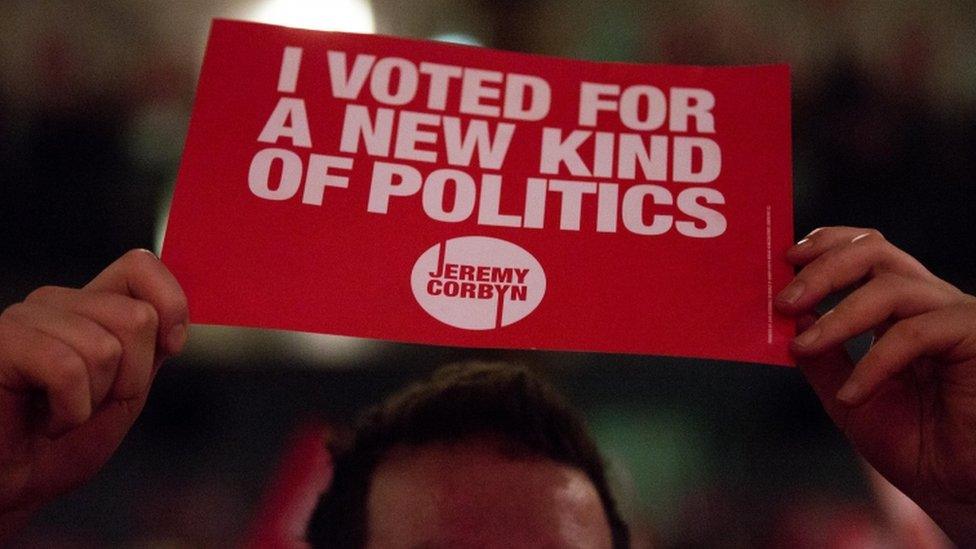Is Momentum at war with itself?
- Published
Splits have emerged in the Corbynite campaigning organisation Momentum.
A bitter dispute has broken out over who should hold the reins of power in Momentum, the movement that was born out of Jeremy Corbyn's 2015 leadership victory.
The Left finds itself fighting itself yet again in a battle that pits the old guard against the young.
The fight is going on inside Momentum, the grassroots organisation set up to support Mr Corbyn's leadership of the Labour Party.
Thousands of people have flocked to its ranks since it was formed last year to take part in grassroots campaigns and to "build a movement with a positive vision for a transformed society".
But a blog by Momentum member Laura Murray, in which she outlined a split between younger Labour Party members "close to [Momentum founder] Jon Lansman" and "older, Trotskyist, seasoned in far-left factions" members means the organisation has been making headlines like "Trotksyist factions seeking to take over Momentum, member claims, external".
A member of Mr Corbyn's inner circle told the BBC's Daily Politics privately that Momentum was now "starting to look like a parallel party" to Labour.

What is Momentum?
A grassroots campaigning organisation set up in the wake of Jeremy Corbyn's 2015 leadership victory, it has 20,000 members and tens of thousands more on its database - with local groups around the country. It had been doing much of its organising through social media.
It says it aims to "create a mass movement for real progressive change" - an anti-austerity movement outside the Labour Party.
Many Momentum supporters are people who were not previously involved in politics but were inspired by the election of Mr Corbyn - a left-wing MP seen very much as the outsider at the start of the 2015 leadership contest.
But the fact that anyone could join, including people expelled by the Labour Party, prompted fears it could be infiltrated by far-left groups opposed to Labour.

That was because of an "extremely problematic" decision to exclude around 20,000 members from voting on the organisation's future policy - instead restricting decision-making to delegates.
The proposal that was voted down last Saturday at a meeting of Momentum's national committee in Birmingham, was to use an online system to give each member a vote.
That is similar to the principle of "one member, one vote" that helped elect Mr Corbyn as leader of the Labour Party. It was being proposed as a way to help decide Momentum's policies and structures at a major conference next February.
In the end, it was resolved that decisions would instead be taken by several dozen delegates, including some on the so-called "hard-left", and among them people who have been banned from the Labour Party.
'One member, one vote'
Momentum's vice-chair Prof Cecile Wright played down the rift. She told the BBC "members will still participate in the activities" but added that she "would have preferred the greater participation of one member, one vote because it's in accord with what Momentum stands for."
But Momentum member and broadcaster Paul Mason, a prominent supporter of Corbyn over the summer, told the Daily Politics that he would not stay in the organisation if other members who have been expelled from the Labour Party are allowed to remain.

Momentum was set up to support Jeremy Corbyn, who has faced criticism from some of his own MPs
The trouble with that approach is that one of them, Jill Mountford, from the Alliance for Workers' Liberty, is on Momentum's national committee.
She told the BBC while there were Trotskyites on the committee, they did not have ulterior motives.
"The few there are, that are involved in the national committee on this occasion, want to be part of the mainstream. They want a mainstream platform to talk about socialist ideas. There's no desire whatsoever for there to be a Momentum Party."
So what could happen next to end the stand-off?
Momentum's raison d'etre could soon change and with that, so could its rules and regulations.
It was once a highly effective campaign tool for Jeremy Corbyn, but with no threat of another leadership election on the horizon, it may, in future, play a greater role in shaping Labour Party policy.
Behind the scenes, there is talk of two strategies to achieve that.
One is to tweak Momentum's constitution to ensure all who join are members of the Labour Party and thus open the door to Momentum affiliating with the party and turning away anyone expelled from Labour.
The second is to establish a new left-policy network if the first option fails.
That, it's argued, would then protect the movement from members with different motives to the tens of thousands who supported Jeremy Corbyn's leadership campaign.
- Published29 September 2016
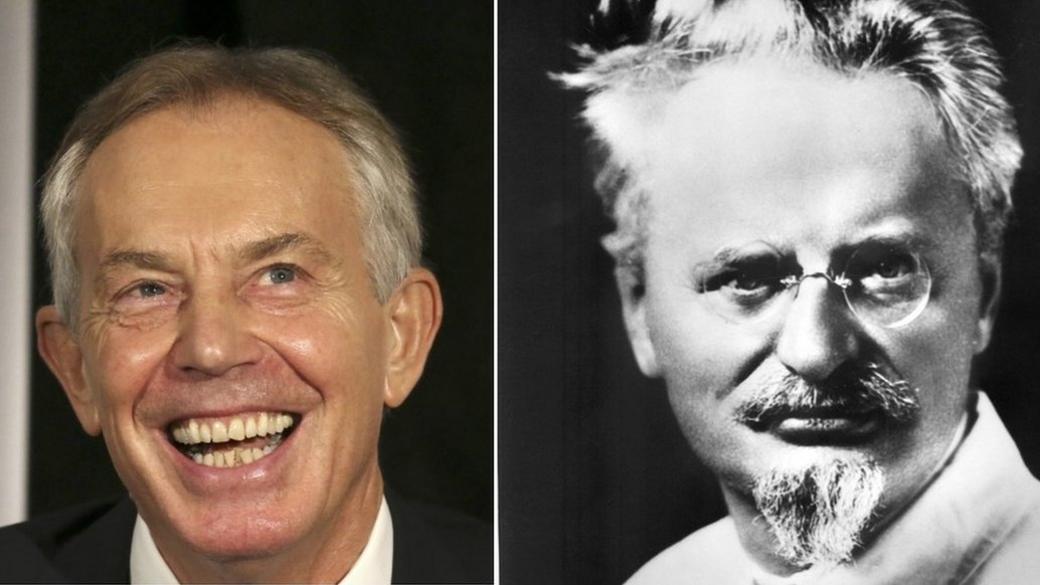
- Published27 September 2016

- Published15 August 2016
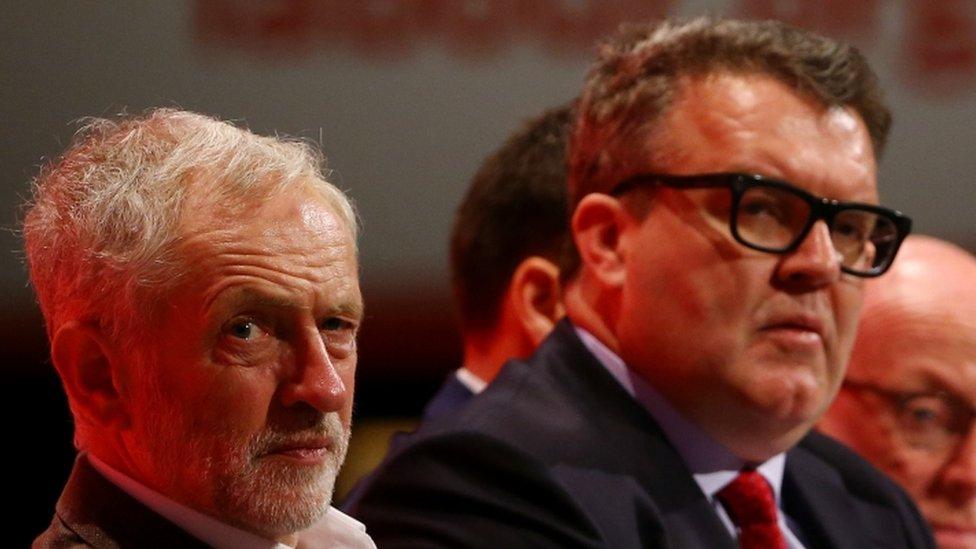
- Published14 August 2016
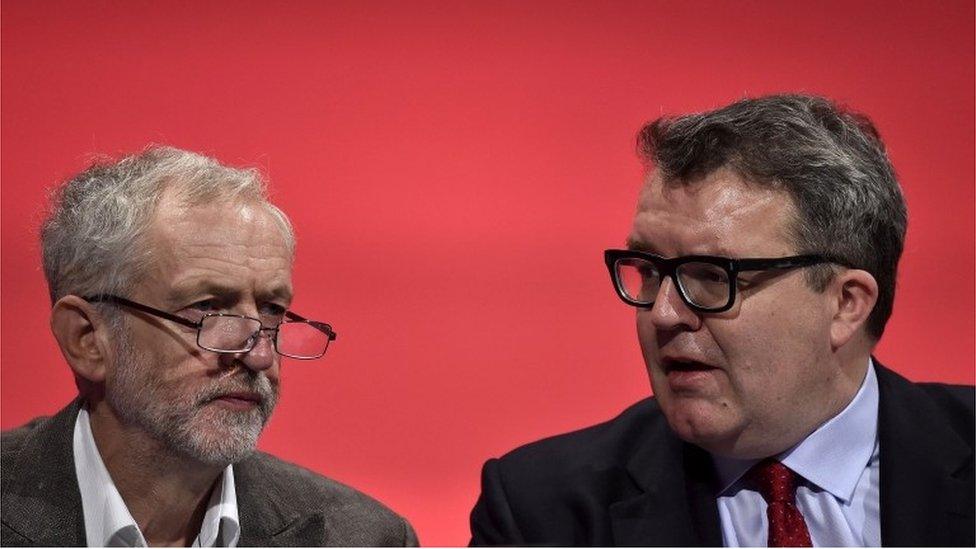
- Published10 August 2016
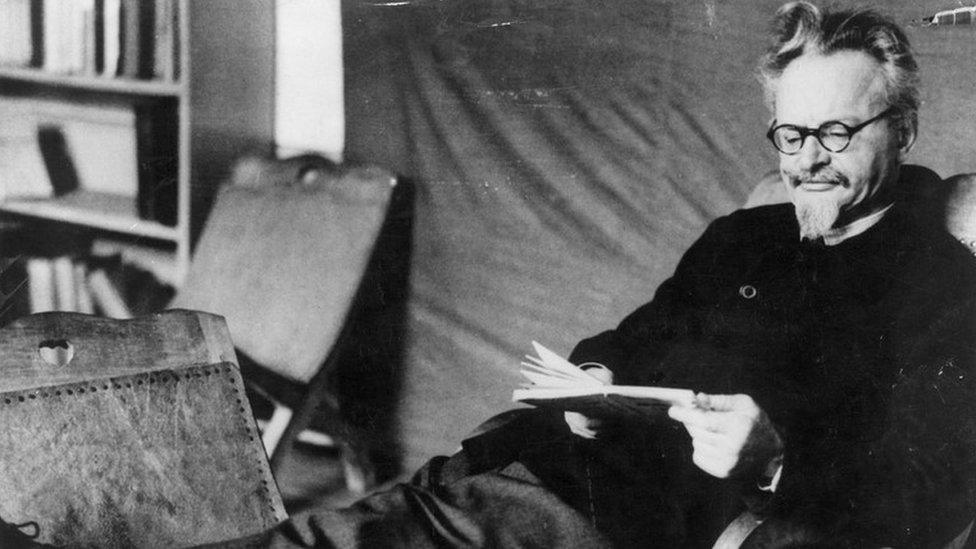
- Published24 October 2015
